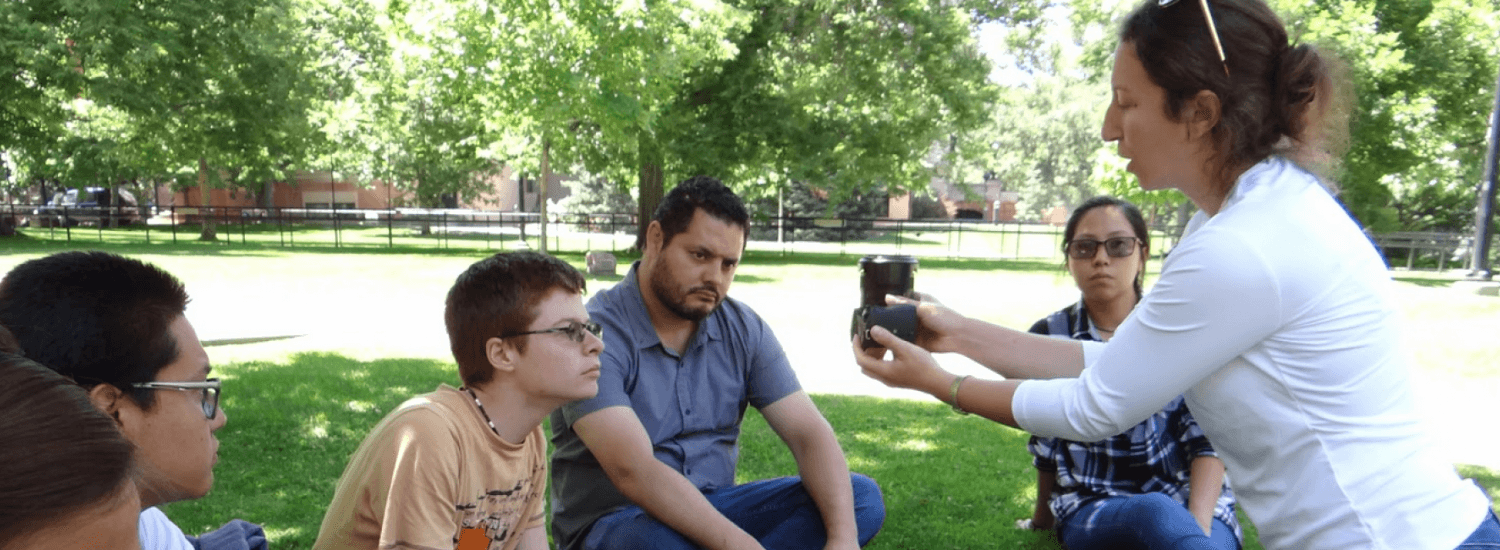Teens Traveled to CU Boulder to Explore Climate Change Through Film
Southern Colorado and New Mexico students create engaging films during science education workshop at CIRES/CU Boulder

Seventeen high school students from southern Colorado and New Mexico journeyed to CIRES at the University of Colorado Boulder recently to explore—through film—the effects of environmental change on their lives and in their communities.
Through an immersive, science-education experience hosted by the Cooperative Institute for Research in Environmental Sciences (CIRES) at CU Boulder, these Upward Bound Math Science students from Trinidad State Junior College took a deeper look at climate change topics, and used their new knowledge to create short, educational movies.
The Lens on Climate Change (LOCC) program, funded by the National Science Foundation's Innovative Technology Experiences for Students and Teachers (ITEST), targets students who may be the first in their families who are college-bound.
Micah and Sam, from Aguilar High School, investigate the effects of warming temperatures on snow reserves by recreating a snowpack in a beaker through a partnership between Trinidad State Junior College Upward Bound and the Lens on Climate Change program at CU Boulder. Photo: Kathy Bogan/CIRES
“LOCC is about giving middle and high school kids the tools to investigate climate change effects in their community and start dialogues about those effects,” said Erin Leckey, program manager of LOCC. “We hope that through making their films that kids learn to be change makers and build resilience for their communities. The empowerment is as important as STEM skills they gain.”
The workshop asked them to think harder about the effects of climate change on their everyday lives. CIRES and the Colorado Film School in Denver mentors worked closely with the students throughout the week, as they explored critical environmental issues through creative brainstorming, research, and film-making.
Many of the students visited and filmed at unique locations around Boulder, such as a group that examined beaver dams and the role they play in protecting ecosystems.
“The coolest thing I did was to get in the water and interview Emily Fairfax [a graduate student at CU Boulder and a beaver expert] because we were in the water and we got to be a film crew together,” said Micah, a high school freshman from Aguilar High School, just north of Trinidad. “There were challenges and we overcame those challenges.”
To celebrate the students' accomplishments, the team held a public film screening last month on the CU Boulder campus. Film topics included: solar energy, beaver dam restoration, ocean contamination, and uranium mine hazards.